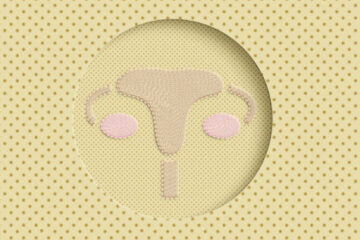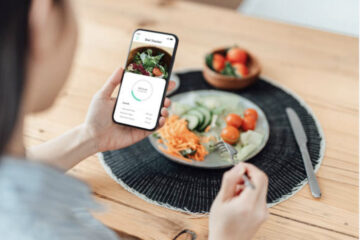Would you like to know what foods to eat to boost your fertility and optimise the health of your future baby? In this blog post, you’ll find the top nutrients you need to help your body prepare for pregnancy and give your baby a healthy head start.
Whether you’re at the stage where you’re thinking about having a baby, or you’ve been trying for a while, it’s a good idea to get yourself prepared as early on as possible.
Following a healthy, balanced, nutrient-rich diet in the pre-conception period will not only boost your chances of becoming pregnant but can also influence your pregnancy outcomes and the lifelong health of your baby.
So, let’s take a look at some of the key changes you may need to consider during the pre-conception period as a woman.
Folate
This vitamin is essential to support the healthy development of your baby’s neural tube, which is your baby’s brain and spinal cord, during the first 12 weeks of pregnancy. Therefore, it is crucial that you get plenty of folate both before and during pregnancy.
Folic acid may also increase your chances of becoming pregnant. A study by Gaskins (2012), found that optimal folic acid intake may stimulate regular ovulation by increasing the progesterone levels needed for pregnancy.
Folate can be found in many foods, including green leafy vegetables (such as spinach and broccoli), avocados and lentils. However, folate is easily lost from your body, and low folate levels in women are common. Therefore, taking a supplement containing 400ug of folic acid at least 12 weeks before, and 12 weeks into pregnancy is essential.
Vitamin B12
This vitamin plays a key role in fertility. If you are deficient in vitamin B12, you may have difficulty becoming pregnant. Inadequate levels can cause changes in the blood which can, in turn, affect egg development and ovulation.
You can find vitamin B12 in any animal-based foods such as meat, poultry, fish, eggs and milk. If you follow a strict vegetarian or vegan diet, you will need to take a supplement. You can ask your GP to check your current levels, and a dietitian can recommend the most appropriate pre-conception supplement regime for you.
Vitamin D
Vitamin D is well known for its role in bone and immune health, but it also plays a key role in preconception health, where it supports hormone balance, ovulation, egg development and embryo quality.
Vitamin D is found in small amounts in foods such as oily fish, eggs and fortified foods. UV light from sunlight is the best source of vitamin D. Vitamin D deficiency is common, due to less time spent outdoors, (especially during the current COVID-19 pandemic) and when sunlight exposure is low during the winter months. A vitamin D intake of 10mcg (400UI) per day is recommended from the month of October to March and exposure to sunlight of at least 5-15 minutes/ day during the summer months is recommended to avoid deficiencies.
Iron
This mineral’s main role is to carry oxygen around our body, when iron levels are low, the oxygen supply is decreased. If you have an iron deficiency (anaemia) it can leave you feeling exhausted and weak. Iron deficiency can also have a big impact on your fertility.
Researchers (Chavaro et al., 2006) have found that women with inadequate iron stores are more likely to suffer from anovulation (meaning they fail to ovulate). Furthermore, when our iron stores fall into an unhealthy range, there is insufficient oxygen delivery to our reproductive organs and this can affect egg quality.
It is crucial to make sure your iron levels are within the normal range during the preconception period to avoid ovulation issues and to help prevent anaemia once you become pregnant.
The best source of iron comes from lean red meat, but it is also found in chicken, fish, eggs, green leafy vegetables and legumes.
Zinc
Zinc is a trace mineral and has a number of functions, including assisting our immune system, regulating insulin and acting as a building block for new cells. It’s so important that your body has enough zinc in the pre-conception period to support rapid cell growth that is required for the health of your eggs, and for successful embryo development.
You can find zinc in a range of foods including beef, chicken, fish, oysters, milk, pulses, nuts and seeds.
Omega 3
Omega-3 is a type of fatty acid that has strong anti-inflammatory properties and is a powerhouse nutrient to include in your diet, particularly during the pre-conception period.
A study by Gaskins et al. (2018) found that diets rich in omega-3 fatty acids can improve fertility where they can reduce oxidative stress and improve egg quality. Additionally, omega 3, particularly the docosahexaenoic acid (DHA) type is vital for your baby’s brain and eye development.
Fish is the best source of omega 3, with oily fish such as salmon, trout, sardines and mackerel being excellent sources, fish should be eaten at least twice a week in a pre-conception diet. If you don’t eat fish, try to include the plant-based version of DHA which is found in walnuts, flaxseeds and chia seeds or consume a supplement.
If you’re looking for more personalised support to help you optimise your pre-conception diet and prepare your body for pregnancy, feel free to connect with our fertility dietitian expert who will personalise a plan for you.
By Laura Vincent, Women’s Health dietitian specialist
References:
Chavarro, J. E., Rich-Edwards, J. W., Rosner, B. A., & Willett, W. C. (2006). Iron intake and risk of ovulatory infertility. Obstetrics and gynecology, 108(5), 1145–1152. https://doi.org/10.1097/01.AOG.0000238333.37423.ab
Gaskins, A. J., & Chavarro, J. E. (2018). Diet and fertility: a review. American journal of obstetrics and gynecology, 218(4), 379–389. https://doi.org/10.1016/j.ajog.2017.08.010
Gaskins, A. J., Mumford, S. L., Chavarro, J. E., Zhang, C., Pollack, A. Z., Wactawski-Wende, J., Perkins, N. J., & Schisterman, E. F. (2012). The impact of dietary folate intake on reproductive function in premenopausal women: a prospective cohort study. PloS one, 7(9), e46276. https://doi.org/10.1371/journal.pone.0046276







